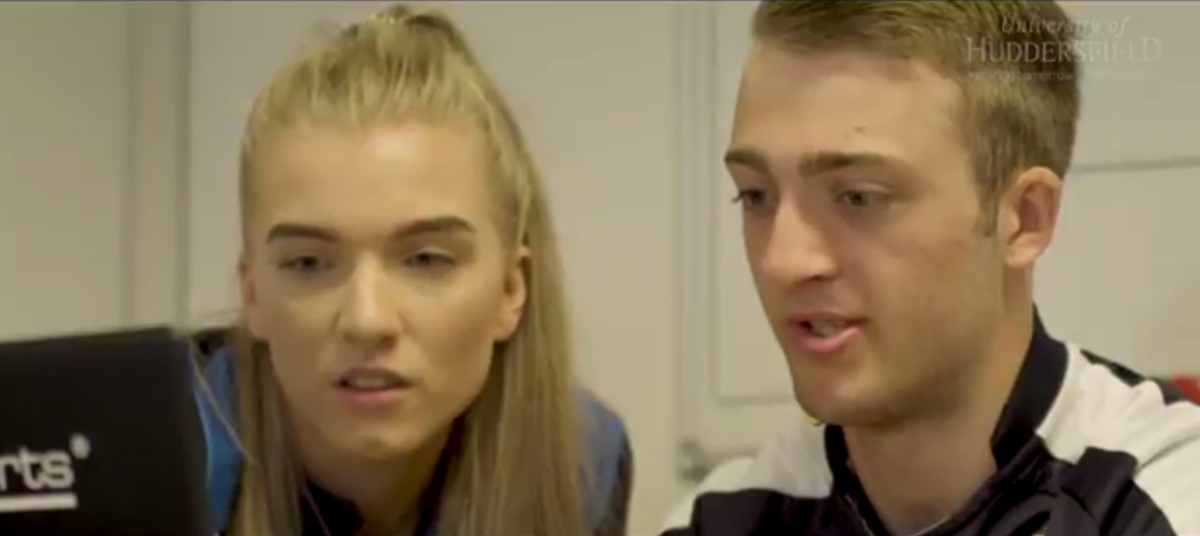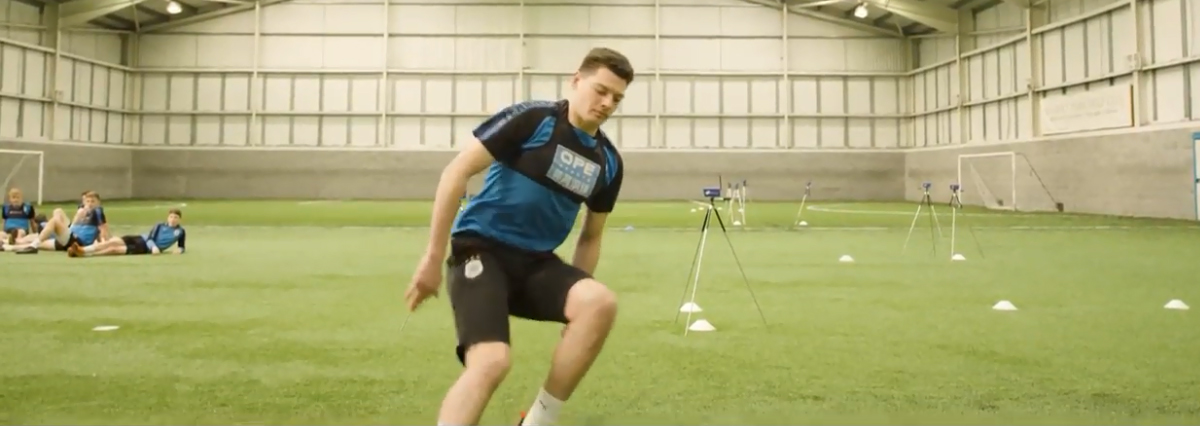Huddersfield Town’s players are put through their paces by students on the University’s Sports Science degree
 Sports Science students Emily Butterworth and Michael Bray
Sports Science students Emily Butterworth and Michael BraySPORT is a passion, but at the top level it is also a science – and University of Huddersfield students have been given an opportunity to use the latest technology and analytical techniques in a partnership with their local Premiership club.
Huddersfield Town run an Academy for up-and-coming football stars and it has forged a partnership with the University’s Sport, Exercise and Nutrition Sciences department, resulting in work placements for students on the Sports Science degree course.
Two of them, Emily Butterworth and Michael Bray, have now completed their placements and embarked on the final year of their studies. But the stint with the Club’s Academy gave them a great opportunity to put into practice the theories and techniques they had been taught and they appear online in a short film that shows them monitoring and assessing the performance of young footballers.
Also, Paul Bower, Lead Academy Physical Performance Coach at Huddersfield Town, talks about the value of work placements through the link between the University and the football club, stating that “the students add value to our set up, asking questions and challenging us on the work that we do”.

Michael and Emily gathered their data via GPS pods worn by every player during training sessions at the Academy. Afterwards, the information was downloaded to computer so that the two students could crunch the numbers and hand their analysis to performance coach Paul.
“The pods track all their movements and tell us how fast they run, total distance covered throughout the session and how long they have spent running above a certain speed,” explained Michael.
He certainly wasn’t on the lookout for under-performers. “Anybody who is slacking just wouldn’t be there in the first place! But in a season there is a lot of stress on the players. When they are playing two matches a week, they need to be well rested,” explained Michael.
“But there are also occasions where a player might need some special training if they have come back from injury,” he added.
Players also wear their GPS pods during matches, enabling in-game analysis, and they are also provided with video clips so that they can scrutinise their performance.
The work placement with Huddersfield Town was hard work, but highly enjoyable, added Michael, who is actually a rugby union player – with Huddersfield YMCA – and a cycle racer.
“So football was new to me. But sports science is about as applying the principles to whatever situation you are in.”
The partnership between Huddersfield Town Academy and the University’s Sport, Exercise and Nutrition Sciences department continues and will lead to new placements. Students have also had work placements with the Huddersfield Giants and Halifax rugby league clubs, and organisations that include Thongsbridge Tennis and Fitness Club, plus local schools and colleges.
More news
Peripheral Arterial Disease training tool launch
Podiatrist Andrew Sharpe developed the assessment method, so that users can confidently assess patients for signs of problems
Mental health concern in professional rugby league
Article explores findings of research into the player welfare managers employed at the 12 Super League clubs
New chemical compound destroys cancer cells
A new chemical compound has been developed by scientists with the potential to destroy hard-to-treat cancer cells
